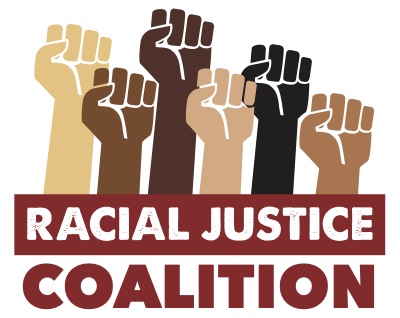Excerpts from Public Comments from RJC members
Amy – I am a very good example of the benefits of generational wealth. My parents benefitting from the GI Bill and favorable mortgage loans enabled them to amass assets and money and pass that along to me which helped me buy my first house and now a house in Asheville. We as a community owe it to our Black neighbors to give them the same opportunities I have and to remedy generations of oppression.
Jody E. – This City’s greatest successes (for example in real-estate, development, and tourism) have been achieved at the expense of Black, Brown, and Indigenous people’s freedom, liberty, health, prosperity, opportunity, and well-being. Using a wide lens, one can understand that the City has benefited financially through the enslavement of Black people, the Black Codes, Jim Crow Segregation, redlining, predatory lending, mortgage loan restrictions, poor education in schools serving Black, Brown, and Indigenous children, and “urban renewal.” While accumulating wealth for people who are White, these actions by the City removed liberty, opportunity, and even property, from people who are Black.
We need you to vote Yes on this resolution to institute reparations for these harms for our communities. It’s past time for the City to make this right. In order to repair the damage done and provide the conditions under which Black, Brown, and Indigenous folks can thrive just as well as White folks in Asheville, the City must engage in a process with the community of redistributing resources toward these folks and their communities (and away from continuously harmful institutions like the Asheville Police Department).
Noel N. – My commitment to our community making reparations to Black Asheville residents is both personal and professional. I am a 5th generation descendant of the Vance family. Removal or repurposing of the monument is important, but it’s not enough. Addressing the harm of the monument must be paired with taking the actions outlined in this resolution. This will lead to substantive repair. I am also a clinical social worker in our criminal justice system. I have witnessed and know to be true the unjust treatment and disproportionate incarceration of Black people. The economic remedies and other measures identified in this resolution will lead to a dramatic decrease in systemic and institutional racism, which will in turn decrease criminalized behavior and shift our community’s criminal justice response.
Hilary C – This is a propitious moment in history, and for so many reasons. It is a moment where you have the power and the privilege to create transformative change in our beautiful city, a city that is still ours, and for which we work to make better daily. Reparations is stating you understand the harm that has been done, historically and also continually, but primarily to Asheville’s residents of color. Reparations means taking a principled stand to repair the breach, to commit to trying new challenges that can make things better for everyone. It will mean committing to the remedies, in fact participating in naming those remedies, all while understanding the long-term community-building you are part of.
Miranda W– Repartitions to the Black community are a must in the way forward in making up for 100s of years of oppression. My well-being, your well-being, our well-being as a collective depends on it. Paying reparations will be a start to a long, long overdue process to healing our Black communities in this city… It’s beyond time for the City of Asheville government to take responsibility for harm done to the Black community here and to understand that you are in a position to make the changes needed for Black folks to live and thrive here.
Matt C – I quote Malcolm X (from 1964) to highlight the harm that has been caused and continues to be caused to Black people in the US for centuries and STILL is yet to be healed: “If you stick a knife in my back nine inches and pull it out six inches, there’s no progress. If you pull it all the way out, that’s not progress. Progress is healing the wound that the blow made. And they haven’t even pulled the knife out, much less healed the wound. They won’t even admit the knife is there.” Now, having acknowledged the knife, Institutional Asheville City has the opportunity to remove the knife and start healing the wound, with the support of thousands of the Asheville community and with the leadership of Black Asheville. There is no excuse not to move forward with this Resolution and start to heal. The road will not be easy or smooth, but nonetheless there is a road, and I will join thousands on it to support Black Asheville.
David G – Asheville needs reparations because anything less than that will not work. Racism will continue its stranglehold on our city. It’s not enough to change police policies, banning practices like chokeholds. New York City banned chokeholds, but that didn’t stop Eric Garner from getting choked to death. If all we do is change policies, then more Black people will die, and their blood will be on our hands. It’s not enough to simply defund the police department, although that’s a crucial first step. Having social workers on the front lines to do triage around all the oppressive conditions for Black people in this city is a whole lot better than having cops in those positions. But it’s not enough. It doesn’t change the conditions themselves. And these conditions aren’t accidental. White people like me created them, and white people like me maintain them. And until white people like me, and the white people in positions of power in this city, declare enough, we are not going to maintain these conditions any more, we are going to reimagine not just the police but our whole social structure, we are going to address all the harm that we have caused and are causing, then we will continue to live under that moral shadow.
